Tour de France 2022: Where the race could be won and lost
Published: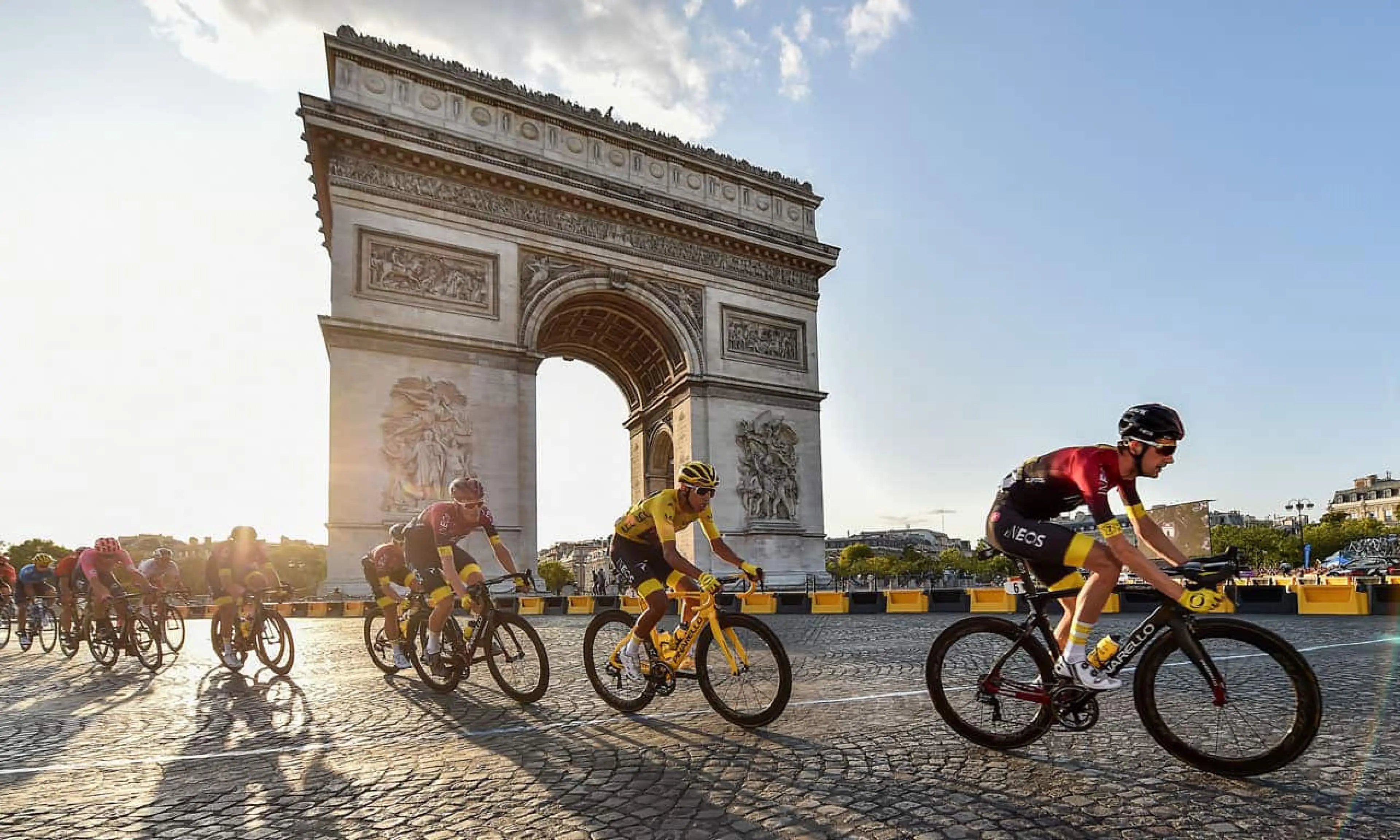
Analysis of the Tour de France 2022
The Tour de France 2022 is the 109th staging of the world’s most prestigious cycling race. Teams of cyclists will compete over 21 separate stages to record the lowest aggregate time and top the General Classification.
We have looked back at how the leading competitors have performed over the previous 20 Tours to predict what could happen this year.
In the interests of consistency we have ignored the seven Tours from 1999 to 2005 – which were all won by Lance Armstrong before his subsequent disqualification – and started our analysis in 1995.
When is the Tour de France 2022?
The 2022 race begins with the Grand Depart in Copenhagen, Denmark on July 1. This will be its most northerly start ever, edging out Leeds in 2014, and the first Tour to grace a Scandinavian country.
The first three stages will traverse the Danish countryside to the port town of Sønderborg, at which point the first rest day will see the Tour move to Dunkirk in northern France.
When will the Tour de France winner emerge?
While a good start is obviously helpful, it has been rare for the eventual General Classification winner to be leading right from the start.
However, from projecting the stage-by-stage classifications over the last 20 valid Tours, we can see that more than half of the eventual champions were at the top of the leaderboard by the 10th stage and all were at least in the top 10 by stage 14.
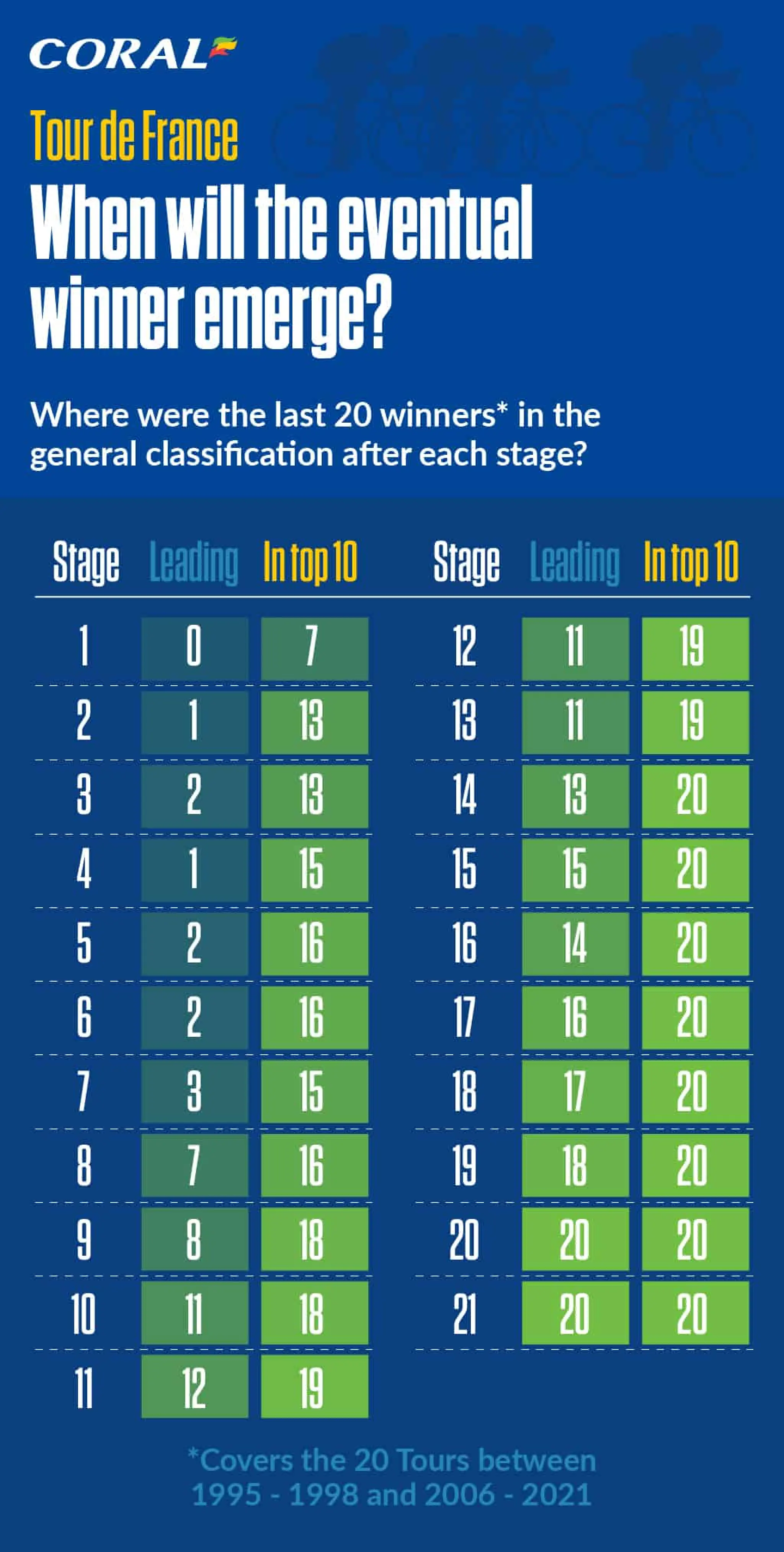
Recent evidence suggests that we should have a shortlist as early as the fourth stage, as all of the last 13 winners were among the top 10 of the General Classification by then, with an average ranking of between third and fourth.
Which stages do winners perform well in?
While the structure of the Tour de France can vary from year to year, there are usually stages in which the eventual champions shine.
Over the 20 Tours we have analysed, stages eight through 10 have seen at least half of the race winners finish in the top 10, and the same goes for stages 17, 18 and 20.
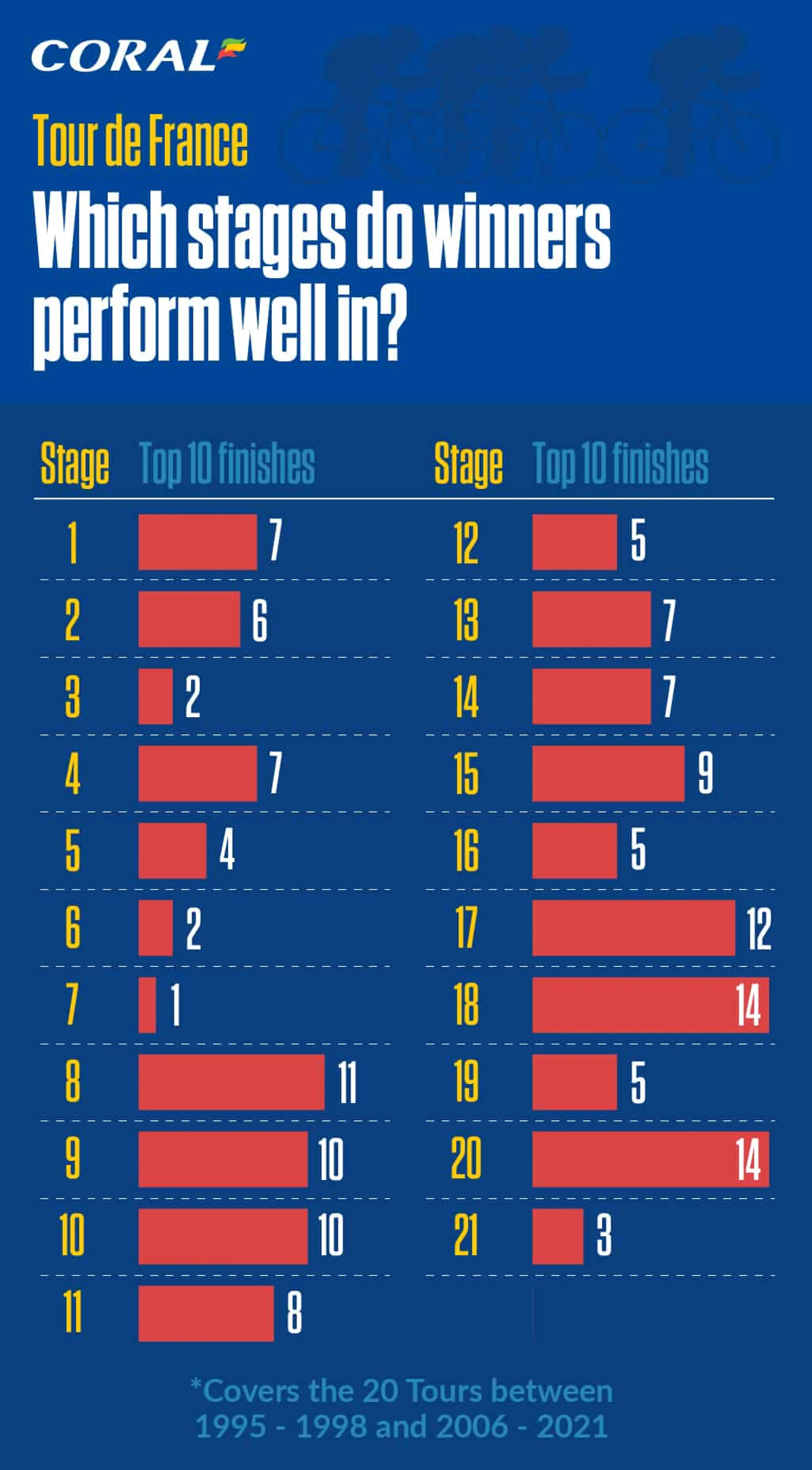
Therefore it should not be surprising if a rider who was fairly anonymous in the opening third of the Tour prevails, as success in the early stages – particularly three, six and seven – correlates fairly poorly with eventual triumph.
What type of stages do winners perform well in?
We can also break down the performance of the last 20 Tour de France winners by both the type of stage and how many stages of that type had already been contested.
Time trials are narrowly the best predictor of success, with over seven in every 10 seeing the eventual champion finish in the top 10.
An almost identical proportion of champions have registered a top-10 finish in mountain stages, with the fifth of these – which is the 11th stage in 2022 – seeing the best average performance by eventual winners.
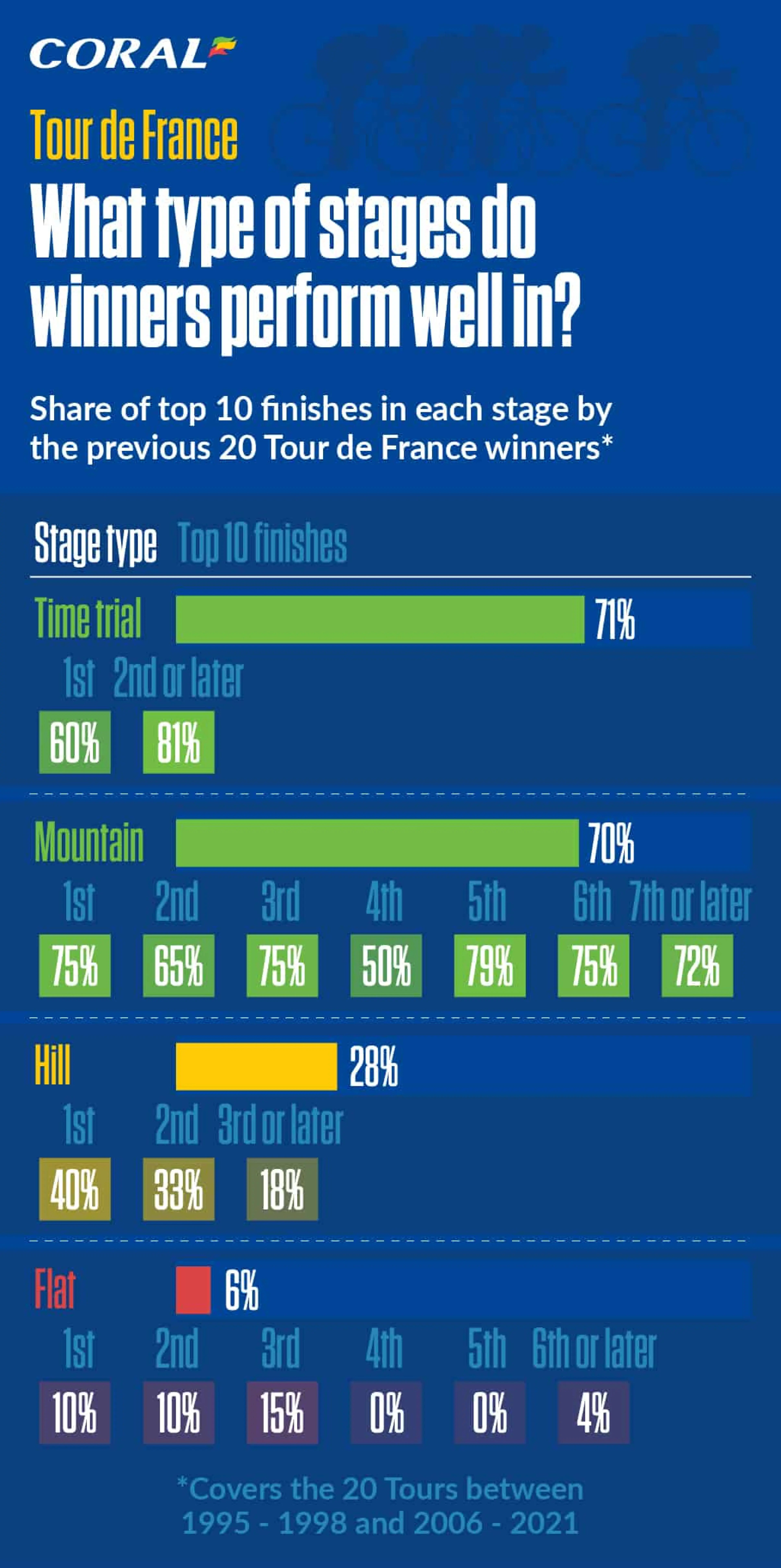
Conversely, hill stages seem to become less important as the Tour progresses and flat stages are all but irrelevant, with only 10 out of 181 over the last 20 valid races seeing the eventual champion among the first 10 cyclists over the line.
The Tour involves more climbing than ever
The Tour de France has typically involved a fairly even mixture of flat and inclined stages, with cyclists typically traversing a smaller share of hilly or mountainous terrain.
Between 1990 and 2012, only one Tour out of our 20 saw less ground covered on designated flat stages than those classified as hills and mountains combined.
Since then though, the aggregate distance represented by hill and mountain stages has been greater than flat ones and extreme climbs are starting to dominate.
In 2021 over half of the total distance – excluding time trials – was on mountainous terrain and the proportion is almost exactly half this year: far greater proportions than any other Tour in recent memory.
Who could win the Tour de France 2022?
We can examine recent performances to see who benefits from there being over 1,000km of mountainous terrain to cover in 2022.
There are 10 competitors currently priced shorter than 50/1 in the Tour de France 2022 betting odds and five of them feature in our look at the leading contenders this year but we have also looked at how often they have finished in the top 10 of mountain stages during the last three Tours.
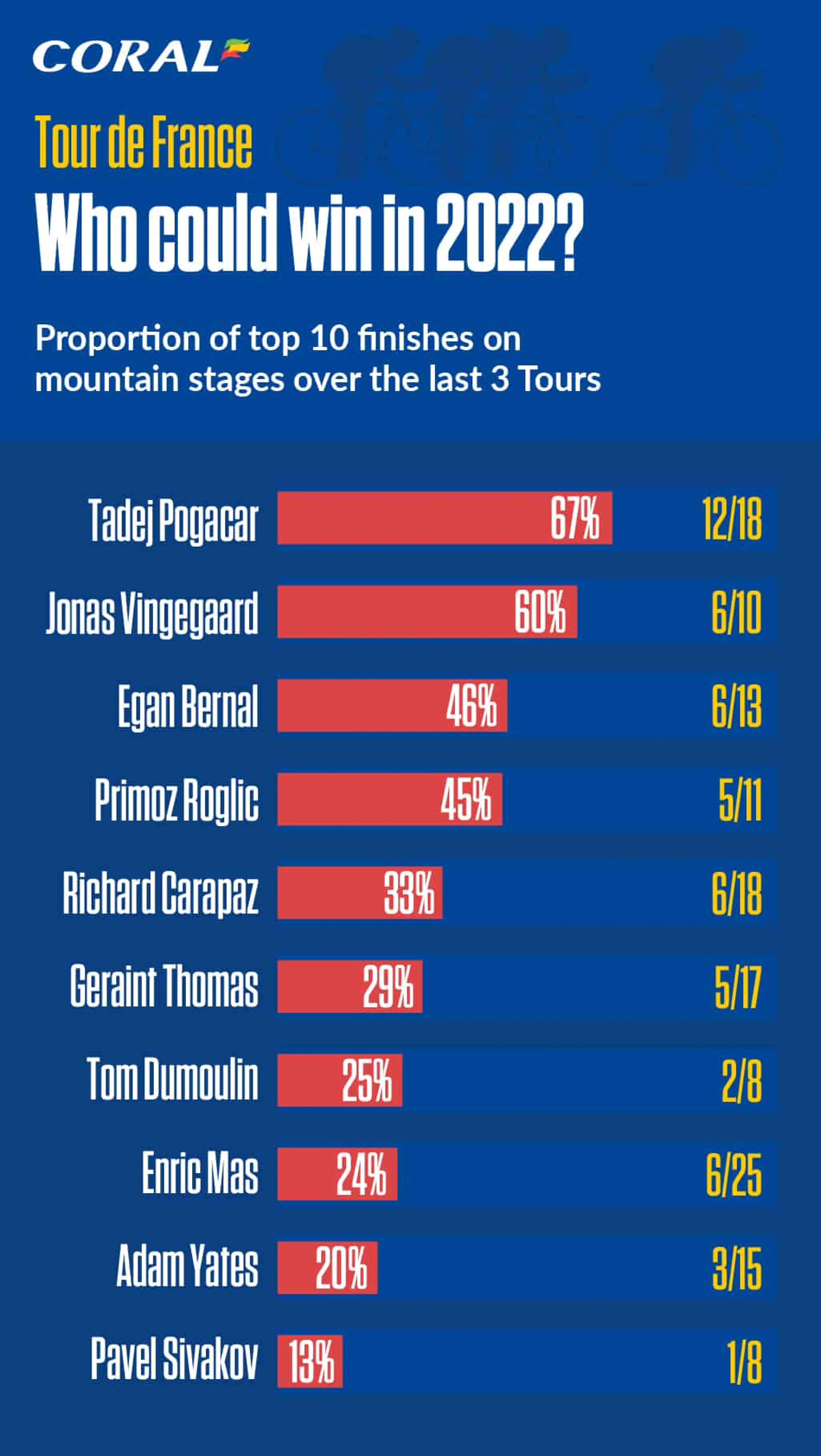
The data bodes well for Tadej Pogacar becoming the first man to win three in a row since Chris Froome, as he has placed inside the top 10 in two-thirds of the mountain stages he has contested.
However, if the local fans at the Grand Depart can give Jonas Vingegaard an early boost then he could be Pogacar’s closest challenger once again. The Dane finished second in his debut Tour last year and secured a top-10 finish in six of the 10 mountain stages.








